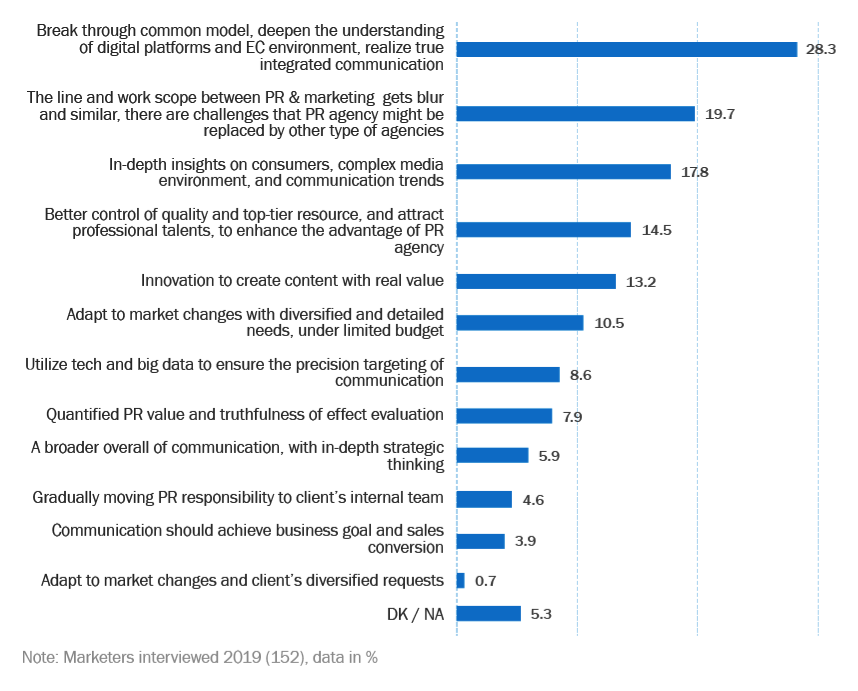Arun Sudhaman 21 Nov 2018 // 4:09AM GMT

BEIJING — The rise of digital is transforming expectations of PR agencies in China, according to R3's annual study of client-sde decision makers.
The fourth edition of the study, based on conversations with more than 150 marketers and communications leaders — covering over 175 different PR agency relationships across 140+ agencies — finds that PR budgets are increasing (+38% over the past year) as the demand for digital and social media services increases.
But that trend is accompanied by marketers and comms directors choosing to work with fewer PR agencies, down to an average of 1.2 from 1.5 in 2017. This compares to 1.9 for creative agencies and 2.0 for digital and marketing services agencies.
As the lines blur between PR firms and other types of agencies, R3 posits that this trend may be driven by clients reducing their PR agencies' scope of work, in favour of handing social media work to digital shops. More companies, furthermore, are choosing to expand their own in-house responsibilities (27%) at the expense of PR agency support.
"28% of marketers said that the biggest change in the PR industry was the decline of traditional media and the rise of new forms of digital media," said R3 China MD Sabrina Lee. "This has really affected the scope of work for many PR agencies, and has continued to blur the line between PR and other communication disciplines."
But as PR firms expand their digital services, the study finds that their main challenge comes from achieving genuine integration on behalf of clients. Marketers’ expectations towards PR agencies have shifted to center on strategy and creative, which leads to the possibility of PR agencies being replaced by other types of agencies (19.7%). PR agencies need to differentiate by enhancing their value proposition in the PR arena (14.5%), while simultaneously developing other capabilities, anticipating marketers’ future demands.

"In 2017, when the rise of digital was on the precipice of changing the PR industry, marketers were talking about how PR agencies would need to adapt to the new normal,” said Lee. "Now, while most PR agencies have achieved different degrees of transformation, the main challenge has become how to achieve real integrated communication."
Unsurprisingly, these shifts have implications for PR firms' data capabilities too. PR agencies are increasingly utilizing data to prove effectiveness (13.5%) and sales conversions (16.2%). There has also been a change in the way marketers are setting KPIs for their PR agency partners; in comparison to the 2017 study, there is an increase in KPIs with a tangible evaluation figure – with clients favouring such effectiveness metrics as engagement, sales figures and ecommerce traffic.



































.jpg)

















